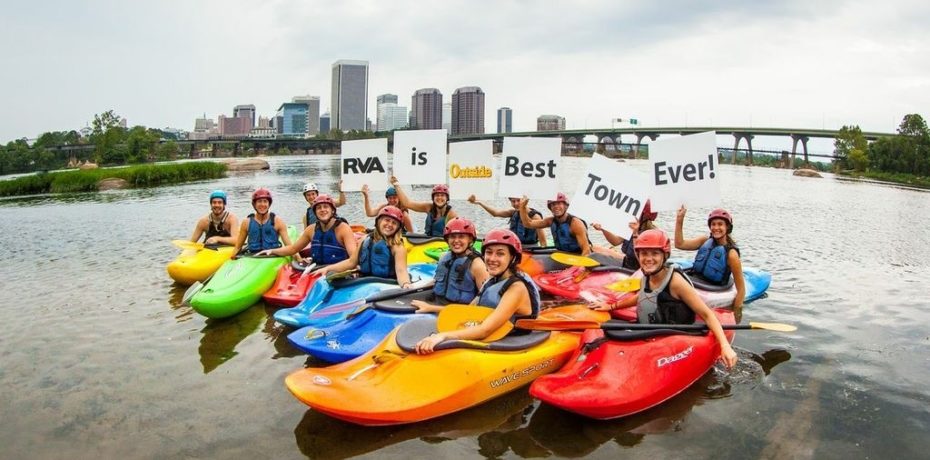In April 2011, about 90 police, EMS, and security officers descended upon Richmond, checked into their $130-a-night hotel rooms at the Richmond Marriott, hopped onto their mountain bikes and hit the region’s trails and streets. For six days, members of the International Police Mountain Bike Association received training and certification on mountain bikes, developing and improving their skills, and attending educational sessions all dedicated to patrolling on a bicycle.
They group set up orange cones in the shuttered GTRC depot on Cary Street, sped down to the James River trails, and received firearms training at a local gun range. One night, they dined in a private room at Capital Ale House, and were given discounts at a few local businesses when they flashed their IPMBA conference badge.
None of it would have been possible without a local connection. “I kept finding out if we could get the conference here in Richmond, which I knew would be good for everybody,” says Sgt. Gerrit “Bip” Terhune, a Richmond bike medic and one of the regional public safety leaders who helped bring the annual conference to town with the assistance of Richmond Region Tourism. “One thing led to another, and everything worked out.” The mountain bike association loved Greater Richmond, its ties to American history, and especially, Terhune says, the Buttermilk Trail and Belle Isle.
Tourists spend nearly $2 billion a year in the region on food, its 18,000 hotel rooms and other purchases, according to Virginia Tourism Corp. Meetings and conventions alone draw about 160,000 people to the five localities (Henrico County more than any) and generate around $80 million a year. Each visitor here for a convention spends about $200 a day, according to Richmond Region Tourism, formerly the Richmond Metropolitan Convention and Visitor’s Bureau.
With those figures in mind, Richmond Region Tourism this spring launched the Recommend Richmond Region campaign, a program that takes advantage of the RVA’s greatest tourism-driving asset: its people.
Recommend Richmond Region incentivizes local residents who are part of nonprofit associations or hobbyist groups to convince other chapters or the nationwide organization to hold meetings in the area, giving back $2 for every hotel room night booked at a hotel to the local nonprofit (100 rooms, one night each, would equal $200; two nights, $400). The program, a rebate paid back by the hotel, relies on residents to funnel leads to Richmond Region Tourism, who will act as the sales team to close the deal and help groups make convention and hotel arrangements.
There was a similar rebate program in place by Richmond Region Tourism – funded predominantly through the region’s hotel taxes – a decade ago. But the city was different then, and the tourism group didn’t have the structure in place to fully support the program. New hotels have since popped up, restaurants grace Grace Street, Broad Street is bouncing back, and civic pride has hit a level perhaps never seen in the city.
“Ten years ago we didn’t look so great, so people had a difficult time recommending Richmond,” says Jack Berry, president and CEO of Richmond Region Tourism. “Today people are lining up to do so.”
Berry notes that while Richmond Region Tourism can sell the city to groups until they are red in the face, every conference that takes place in the Greater Richmond area relies on a local cheerleader. “At the end of the day, it’s a local cheerleader to tip the balance for getting that convention to come to the region,” he says. “Enthusiastic residents have been doing this for years, but this is a way to give them something concrete to plug into.”
Carolyn Cook was one of them. The bookmobile supervisor with Henrico County’s public library led the charge to bring about 250 librarians and professionals from the Association of Bookmobiles and Outreach Services to the city for last year’s annual conference.
Cook said the group had never held its conference on the East Coast, “and I thought right away that Richmond would be a wonderful city.” She partnered with Richmond Region Tourism and, a year prior to the October conference, brought the bookmobile group’s president to Richmond for a tour. “Of course, being librarians and people who are interested in culture, they were very interested in Richmond and the history of the area. We just talked up the city big time.”

